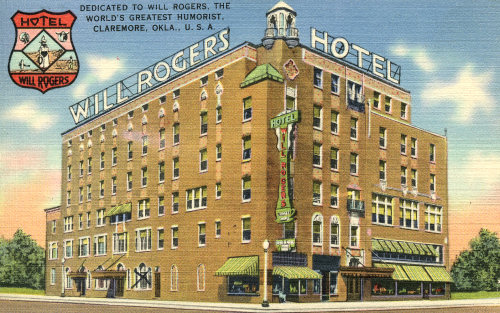I Have Risen
Immanuel R. Foster
Oakland, California 2005 Immanuel studies history and science at Harvard University and plans to go to law school. On his visits home, he still stops by the Will Rogers Hotel.
Hidden in a downtown Oakland alleyway is the Will Rogers Hotel. Mice, rats, roaches, bacteria, and downtrodden people have colonized the Will Rogers. Its prison-cell-sized rooms house whole families. Human feces are smeared on the shower walls of its communal bathrooms. An aggregate stench of rot, urine, alcohol, and vomit permeates the hallways. There are crying beeps from smoke detectors with dying batteries, shouting crack addicts, louder-shouting crack dealers, cigarette burns on the carpets, peeling paint, barred windows, a malfunctioning elevator, and creaking stairs.
The Will Rogers Hotel is the place where I first became conscious of critical choices I would have to make in my life and of the actions I would take to implement them.
During my thirteenth and fourteenth years, the Will Rogers was my home and the home of other people forgotten by society, the people on skid row, people like my mother. She worked the graveyard waitress shift at Denny’s, while my father was out somewhere “giving my mother space” and dealing with his depression.
I was almost always home alone, free to mingle with the other hotel residents. I used to love having conversations with them. They were all battling their own problems: cop problems, drug problems, alcohol problems, social problems, money problems, marital problems, and so on. And they unburdened themselves with me. Their life stories and anecdotes intrigued me with their enormous variety. Almost every day I learned something new about life. I suppose you could say that they were my bedtime stories.
They also taught me survival strategies: “When you sell crack, you hide it under your tongue so that when the five-O come you can swallow it and get it back when you shit it out later.” I had never thought about selling crack, and I quickly decided that I never wanted to.
Maybe it was because of all the stories I heard at the Will Rogers – and the many similar places I lived – that I started to do well in school. After all, there were good stories to be heard at school, too, and unlike the Will Rogers, where I could not ask questions, at school good questions were actually encouraged. Moreover, I enjoyed the predictability of the school day and the stability of the classroom environment. I was fascinated by what I was learning – topics so different from the lessons of my home.
Many of the people I knew at the Will Rogers were good people who had encountered difficulties they were not prepared to face difficulties that had broken them, making them lose hope for a better life. I empathized with my neighbors, but there was not much I, then 13, could do to help them. Seeing their situations strengthened my resolve to lead a different life. I chose to work hard at school because I knew that, by doing so, in the future I might actually be able to help them, or people like them.
As I started to achieve scholastically, I found myself making friends at school with a wider spectrum of people. White middle class kids, for example, invited me to their homes. The first time I walked into the house of one of my new friends I saw a clean carpet, pristine white walls, parquet floors, plump furniture, and his smiling mother in the spotless kitchen, preparing an after-school snack.
Before walking into that house I thought such lives existed only on television. During my first visits I felt uncomfortably self-conscious and didn’t know how I was supposed to behave. After some time, however, this feeling vanished and was replaced by a heightened awareness of the way some children are brought up to succeed and others to fail. While I enjoyed my new friends, I knew that there were people back at the Will Rogers, my other companions, struggling to pay their rent. There were so many people who led disconnected lives – lives without love, warmth, or dignity. I even felt a sense of guilt because, through choice, tenacity, and perhaps a bit of luck, l was on a trajectory that would enable me to leave behind the world of the Will Rogers.
Eventually my family managed to find a publicly subsidized apartment in Berkeley, but I have never forgotten the Will Rogers. Since then, I have served food at homeless shelters and have sat and shared conversations with the people there, still benefiting from some of their reflections. I often stop on the street and converse with beggars; more than money, many of them merely want someone to talk to.
Meanwhile, I have become an assiduous student. I regularly stay up late reviewing chapters meticulously and making detailed notes. I have attended public lectures at UC Berkeley, and, through the Quest Scholars Program, private lectures at Harvard University. I know my studies will help me contribute to my community.
Prior to the Will Rogers Hotel I had lived in many low-income, violent environments; I had spent nights sleeping in the park with my sister, or by myself, when both my parents were in jail. Among these varied living situations, the Will Rogers will always be special for me as the place where, in the thirteenth and fourteenth years of my life, I became conscious of the pivotal choices I was making.

